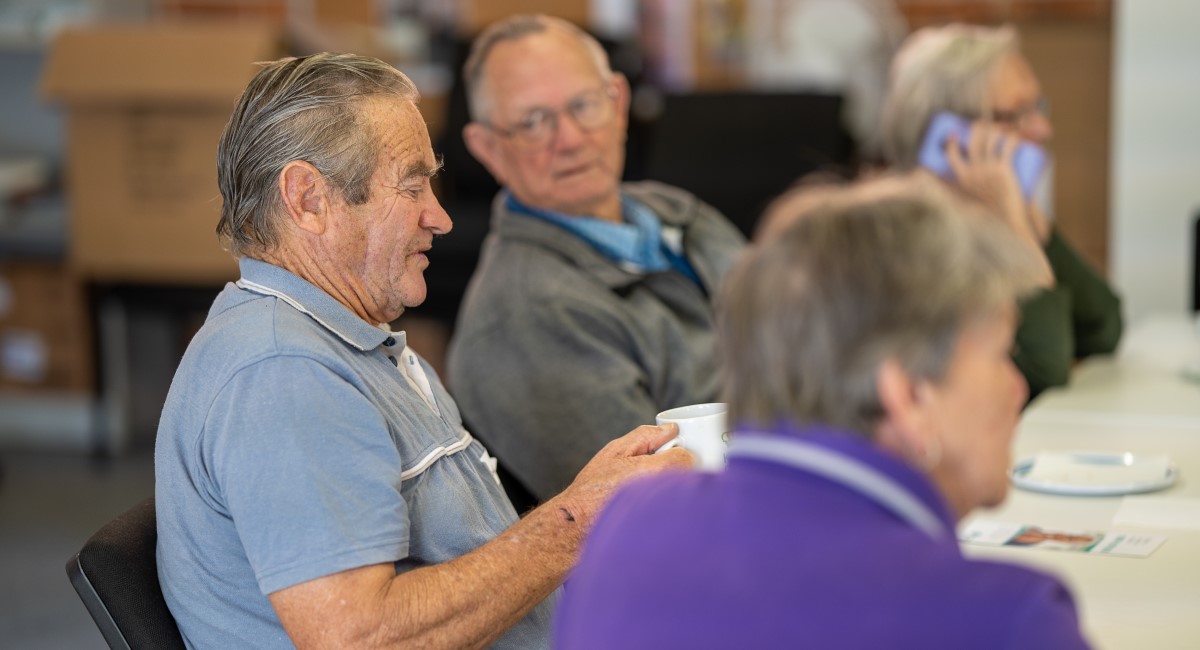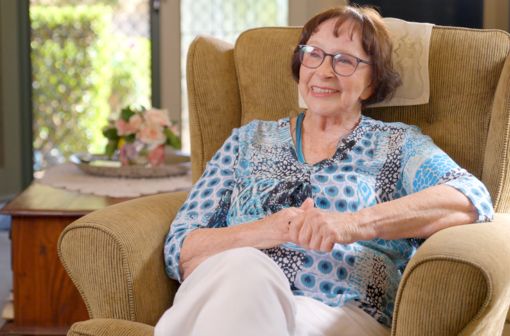“The group gives people a sense of belonging. It is very welcoming and friendly, and carers can come together to discuss or work through any problems they may be experiencing.”—Gemma Berridge, Australian Unity Dementia Project Co-ordinator.
It takes a certain type of person to become a carer – to demonstrate steadfast compassion towards helping another person each day.
And although many carers may be exceptionally resilient types, even the strongest of carers in our communities need to look after themselves to ensure their own wellbeing needs are met.
So how can carers seek support when they need it? And what type of services are available?
The role of carer is one that, at times, can feel unrelenting. For many carers who are busy looking after a family member or friend, it can seem as though there are few opportunities to connect with fellow carers—and that few other people can truly understand this unique role.

Megan Harrison, a Dementia Project Coordinator for Australian Unity, says caring for carers is imperative.
“Caring for a person can be rewarding on many levels. However, it can also be tiring and stressful, and carers can become emotionally and physically drained. It is so important that their wellbeing is monitored regularly to ensure they avoid becoming socially isolated, and that their general health is maintained.”
One way carers can gain assistance and connection is through a carers’ support group.
This allows these hard-working people to meet others in similar situations, learn more about how to adapt to the progressive conditions of their loved ones and feel a sense of connection.
Australian Unity holds carers’ groups in many locations across Australia, which provide a safe and confidential environment for carers to learn more about and discuss their caring roles.
Of course, it can be difficult for carers to leave a person they are caring for to attend a support group.

“We had a carer in Coonabarabran [NSW] who was very reluctant to leave her person with dementia while attending our Dementia Carers group,” Megan says.
And yet, after finding the right support person to take care of her loved one, “she found the group so advantageous that she is now leaving her person [with a support carer] for two hours per month to attend the group, and, if it works out, she is going to increase it to two hours per fortnight.”
These types of support groups have led to many positive results for carers and those they care for.
Australian Unity Dementia Project Coordinator Gemma Berridge says, “These groups have helped to enable carers to plan for the future, and to learn and grow in their roles. Following attendance at the carers' group, carers who had no support can be directly linked to home care support, respite networks and other information services. Life as a carer can be more manageable with this support in place.”
Support groups, Gemma explains, “help to increase carers’ problem-solving and coping skills and reduce carer isolation and stress. We also arrange for guest speakers to visit to provide information about services and support that are available to the carers and their person.”

Not only do carers’ groups serve to educate, but they also provide a network from which carers can call for support.
“The group gives people a sense of belonging. It is very welcoming and friendly, and carers can come together to discuss or work through any problems they may be experiencing. Carers also have the opportunity to share their experiences and knowledge,” Gemma says.
Support groups are not the only option for carers seeking help. Many carers also find solace in one-on-one counselling sessions or gain valuable assistance online, over the phone or through respite services.
Megan says, “There are a few avenues for carers to seek help: through their current service provider, My Aged Care, the National Dementia Helpline [for those caring for dementia patients] and Care Gateway are the most common.”
Words: Sonya Gellert Pictures: Robert Jeeves


.jpg)